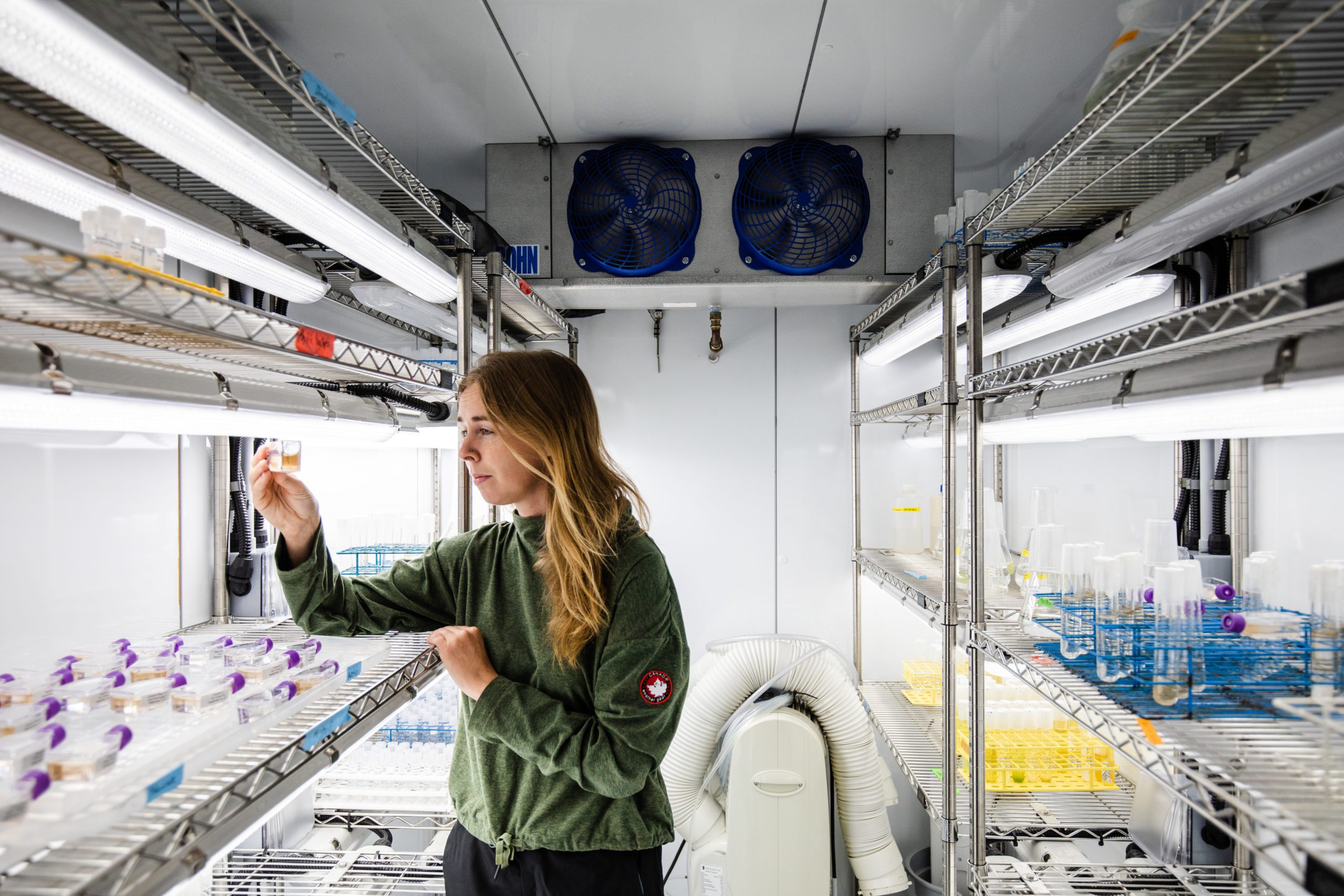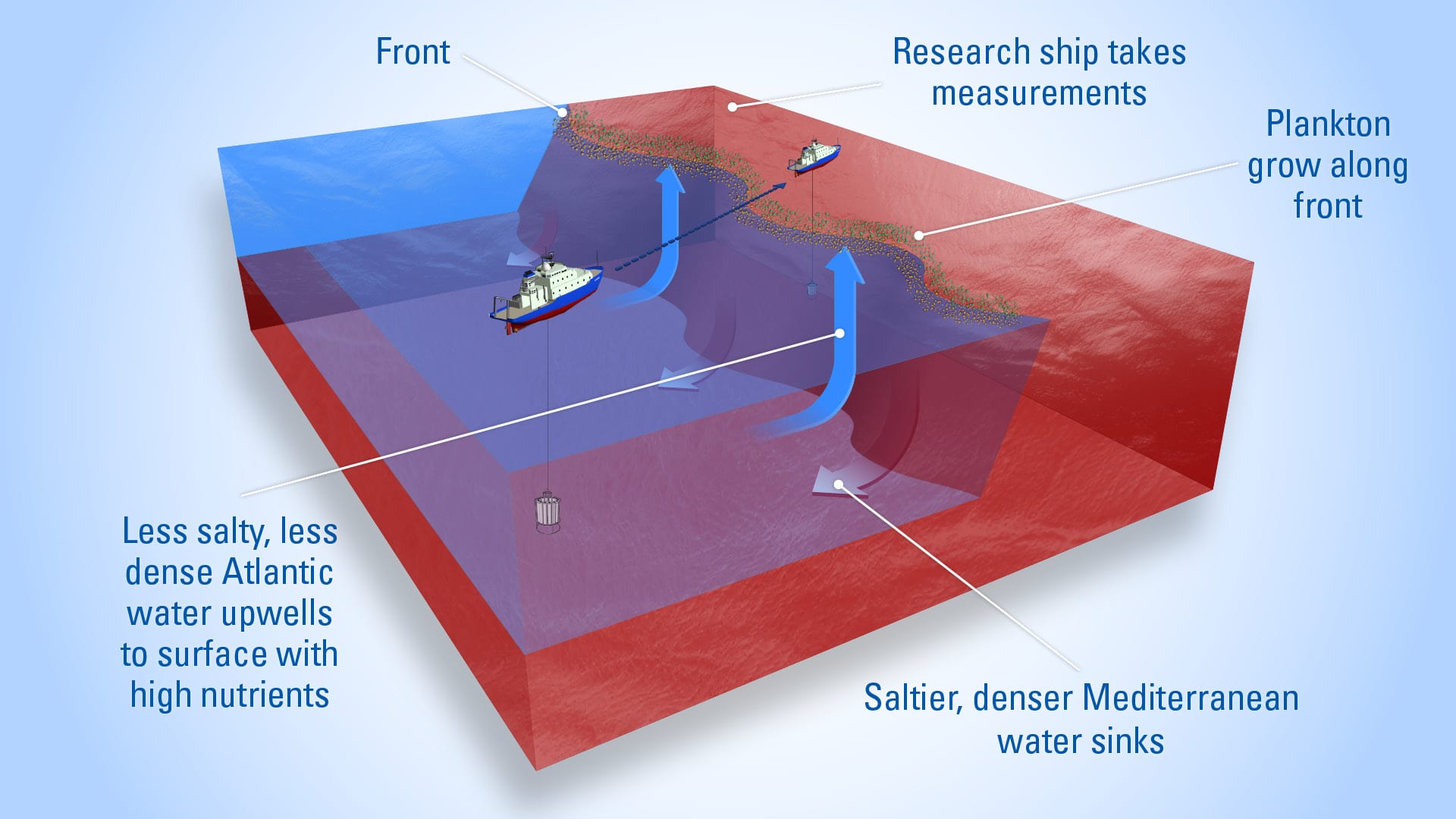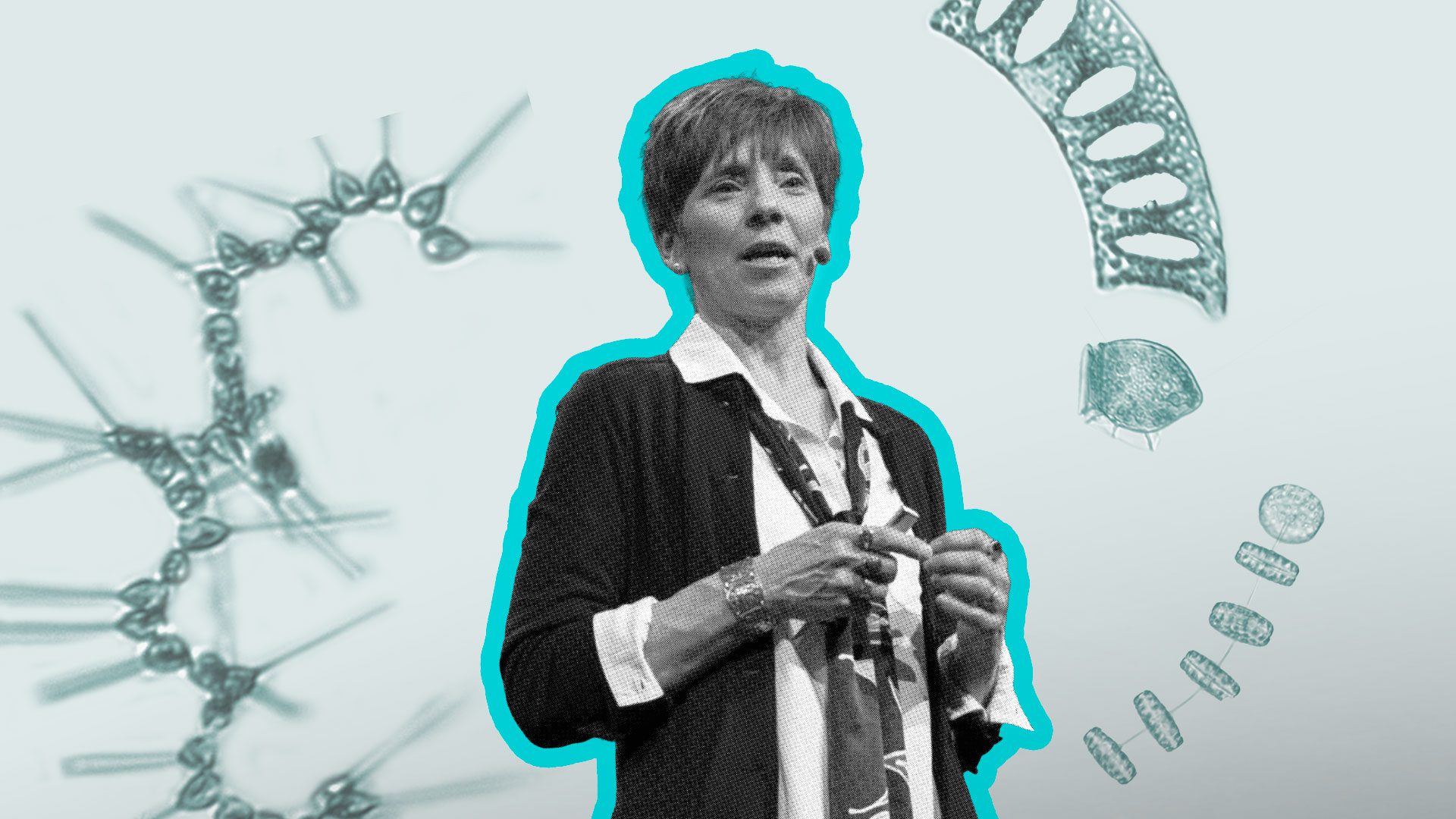
The little big picture
WHOI senior biologist Heidi Sosik on the critical need for long-term ocean datasets
Estimated reading time: 3 minutes
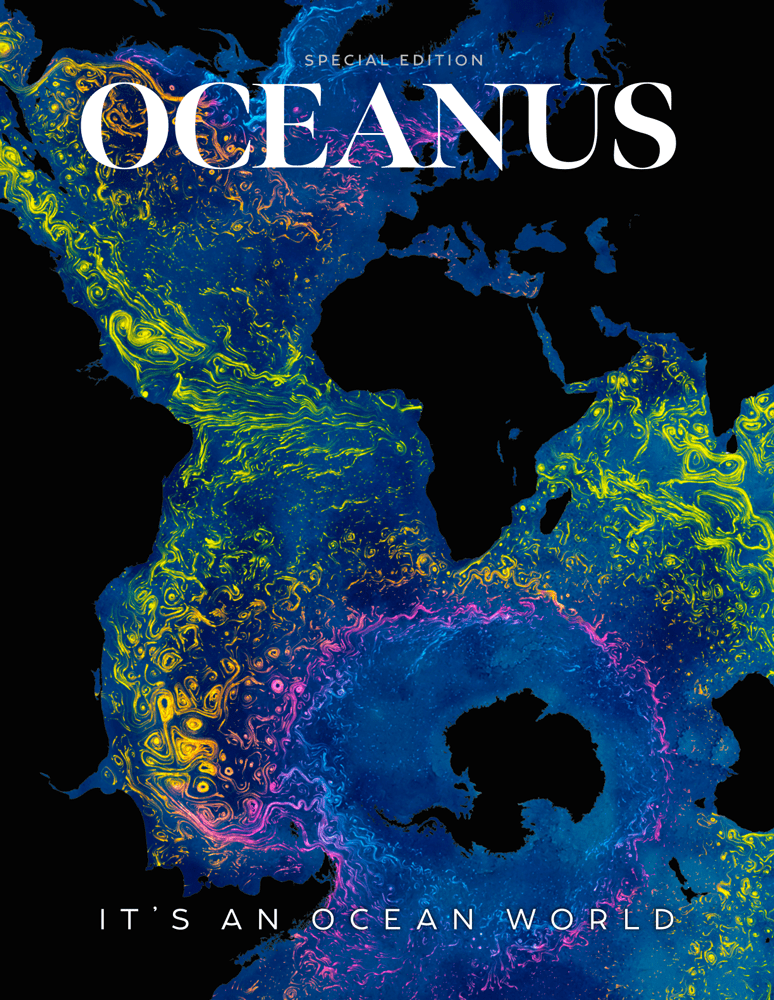 This article printed in Oceanus Winter 2025 - SPECIAL ISSUE
This article printed in Oceanus Winter 2025 - SPECIAL ISSUE
The routine of getting up, brushing your teeth, and going to work is shared by many. Each day feels the same, but over time, small changes add up—like setting an earlier alarm to fit in a workout or adjusting to a new commute. In the same way, marine life follows its own patterns, quietly adapting to changing conditions.
As the ocean warms and currents shift, the trillions of plankton that call these waters home follow suit. These microorganisms support the entire marine food web, though many aren’t visible to the naked eye. While changes in species migration and populations have high potential to go unnoticed, consistent, long-term ocean observations can shift that narrative.
WHOI senior scientist Heidi Sosik leads the Northeast U.S. Shelf Long-Term Ecological Research program (NES-LTER). The study area off New England, extending from the coast to 100 miles (160 kilometers) offshore, is a hotspot for these microorganisms, making it a prime feeding ground for fish, birds, and large marine mammals. In turn, this biodiversity supports coastal economies through fisheries and recreation.
Although most people will go their entire lives without looking at the planktonic communities that inhabit the ocean, Sosik reminds us, “microscopic organisms are the foundation of all of those benefits that the ocean provides us.”
Q. What can microscopic communities reveal about overall ocean health?
Without plankton, there wouldn’t be productivity at any other level of the food web. Larger animals depend on these microscopic organisms to be able to live and thrive in the ocean. This means the seafood you buy at markets, such as scallops and fish, is only available because of plankton. Studying plankton helps us understand how they’re responding to change and why fisheries are fluctuating. For instance, some types of plankton are better at setting up short food webs that lead to a lot of new productivity. So, when we study how the base of the food web is changing from season to season and year to year, it helps us understand how much of that productivity might be available for fish, birds, and marine mammals. This knowledge can inform fisheries policies and conservation efforts.
Q. The NES-LTER program has conducted quarterly sampling of these communities in the North Atlantic for eight years. Why is long-term research so important?
The NES-LTER program, largely funded by the National Science Foundation, is part of a network of locations where ecological systems are being studied for decades to understand how they work and respond to changes over long periods. In the waters of the Northeast U.S. shelf, changes include warming ocean temperatures, human impacts on the seascape, and changes in acidification. This region sees many seasonal shifts, making it difficult to tease out what’s driving ecosystem change. Long-term studies are essential for us to separate short-term variability from year to year and longer-term impacts that we know are happening around the globe.
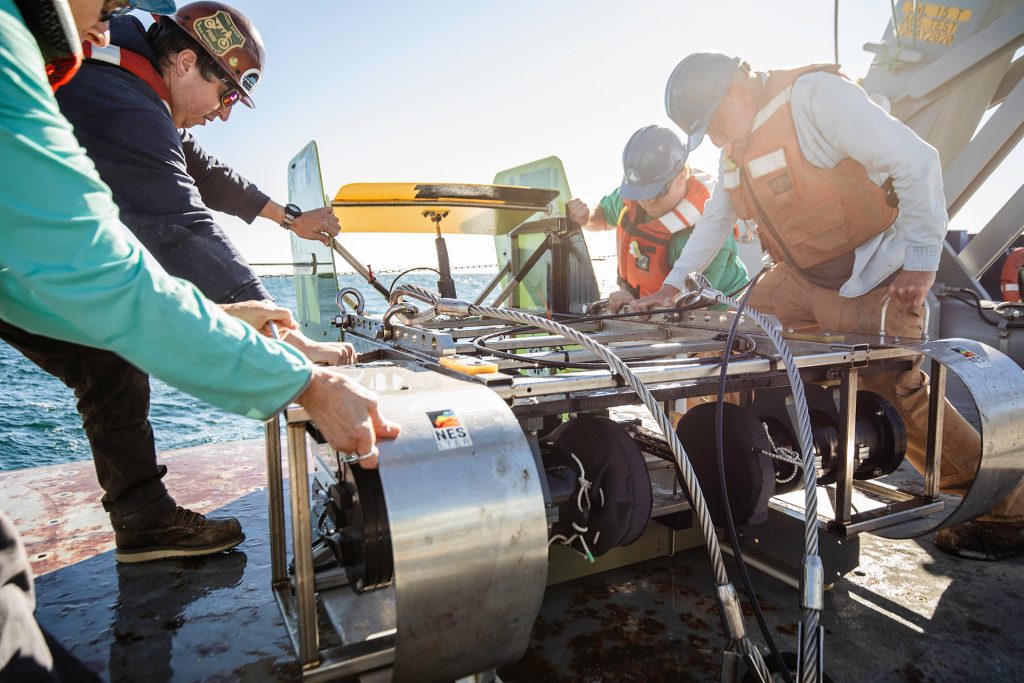
WHOI scientists and crew haul the deep-sea plankton imaging system Stingray back aboard the R/V Neil Armstrong during an NES LTER cruise in 2023. (Photo by Daniel Hentz, © Woods Hole Oceanographic Institution)
Q. What is the scientific value of uninterrupted datasets?
Sustaining long-term observations is really challenging! It often takes years before the most exciting insights pop out, but we commit to this hard work because the resulting datasets are so powerful. They help us understand how and why the natural world is changing around us, in a way that short-term studies can’t. For example, long-term datasets are already giving scientists critical views of how changes in the Gulf Stream are increasingly bringing salty offshore waters onto the shelf—affecting ecosystems and fisheries more in recent decades. Without an understanding of these ecosystems, we risk improper resource management, such as overfishing and irreparable damage to marine food webs. Some kinds of research can pick right back up after a pause or delay, but gaps in ecological time series are lost forever. This resets the clock on the long-term records we desperately need, so we have the best science to help us be responsible stewards of the ecosystems we depend on.
